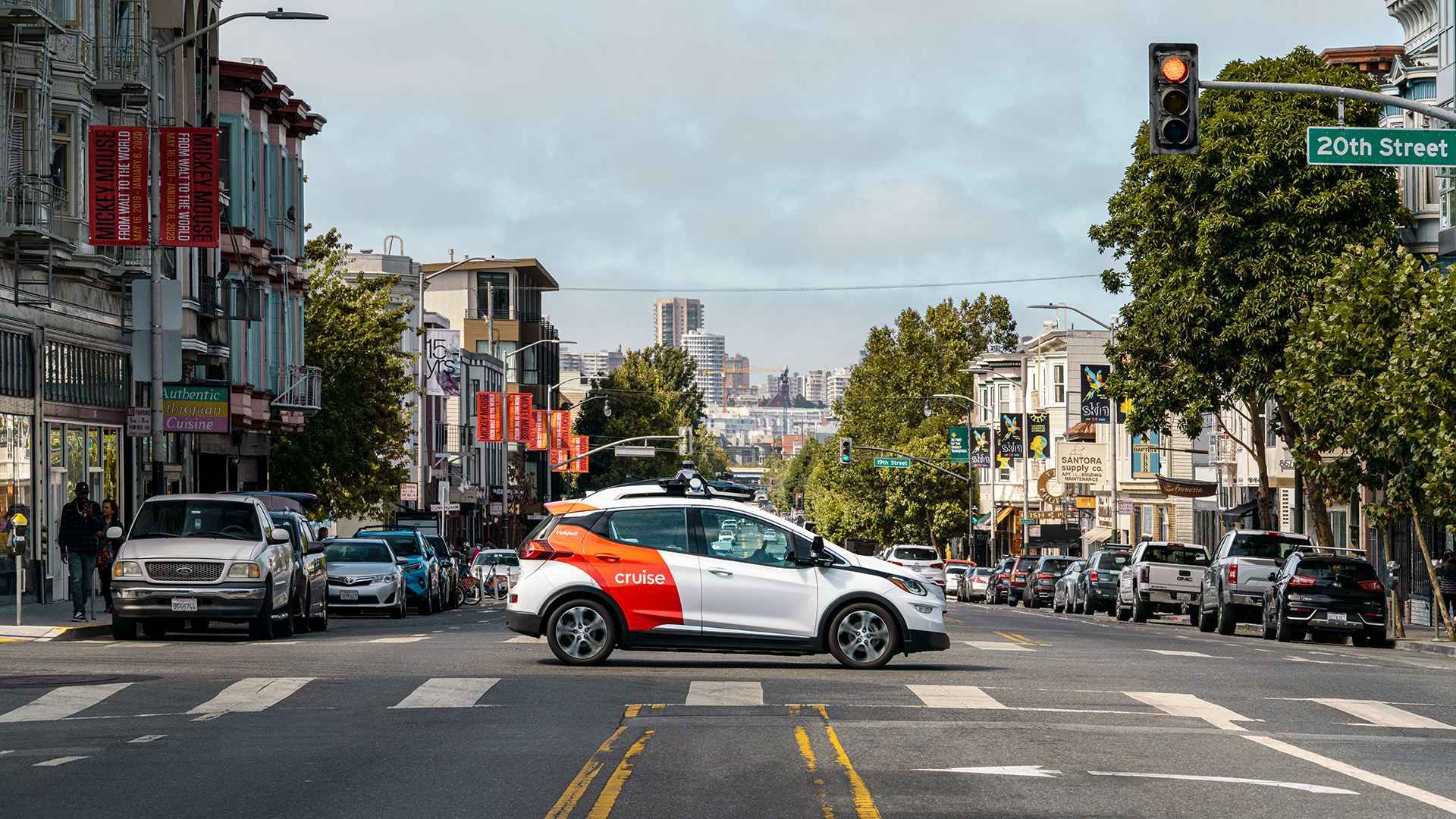Autonomous Vehicles
Cruise, Rivian raise billions to ready technology for the road
January 19, 2021
(Courtesy of Cruise)
Rivian and Cruise have each closed multibillion-dollar financing rounds as they inch closer to making their next-generation auto technology available to the masses.
Rivian's $2.65 billion round reportedly values the electric truck maker at $27.6 billion ahead of planned launches for three vehicles. The investment was led by T. Rowe Price, which also spearheaded a $2.5 billion round for Rivian last year and a $1.3 billion financing in 2019. Investors including Fidelity Management & Research, Amazon's Climate Pledge Fund, Coatue and D1 Capital Partners also participated.
General Motors' self-driving car unit Cruise is now valued at $30 billion after it picked up more than $2 billion from its parent company, existing investor Honda and other institutional investors. Microsoft also joined the funding round and became a strategic partner, offering up its Azure cloud computing service to help Cruise bring its autonomous vehicle services to market.
GM CEO Mary Barra said in a statement that the partnership with Cruise would help to "accelerate the commercialization" of its electric and autonomous vehicles, but did not specify a timeline. GM plans to launch 30 new EV models and spend $27 billion on electric and autonomous technology by 2025.
Cruise's new valuation matches the $30 billion that Alphabet-owned Waymo was reportedly worth after raising $3 billion last year. Cruise was valued at $19 billion in 2019, according to a PitchBook estimate.
Rivian has several model launches slated for this year: the R1T, an electric pickup truck, a seven-passenger sports utility vehicle dubbed the R1S and electric delivery vans for Amazon, which has ordered 100,000 units.
Overall car sales fell steeply last year, but many automakers reported double-digit growth in electric vehicles, Bloomberg reported. Morgan Stanley estimates that EV sales will overtake those of gas-powered vehicles by 2035.
Tesla's soaring stock price and investor appetite for unproven, unprofitable auto startups highlight this rosy outlook.
Venture-backed EV startups took in $9.5 billion in 2020, and self-driving companies raised a combined $8.5 billion, according to PitchBook data—both setting decade highs in the process.
Several electric vehicle makers have gone public in recent months through mergers with special-purpose acquisition companies. Fisker, Canoo and Lordstown Motors have yet to deliver any vehicles, but each have market caps around $4 billion following blank-check mergers last year.
SPACs have also shown an appetite for autonomous vehicle technology through mergers with light detection and ranging companies Aeva, Luminar, Ouster and Innoviz.
In the second half of 2020, an index of SPACs that merged with mobility tech companies generated a return of 77.7%, outperforming the S&P 500, Nasdaq 100 and the Renaissance IPO Index, according to a recent PitchBook analyst note.
While the roadmap for large-scale deployment of autonomous vehicles remains less clear than for electric cars, last year brought some notable breakthroughs for self-driving carmakers.
In December, Nuro became the first such startup to receive permission from California regulators to operate a driverless delivery service. And Waymo opened up its autonomous taxi service in Phoenix to the public after raising its first external financing.
Comments:
Thanks for commenting
Our team will review your remarks prior to publishing.
Please check back soon to see them live.